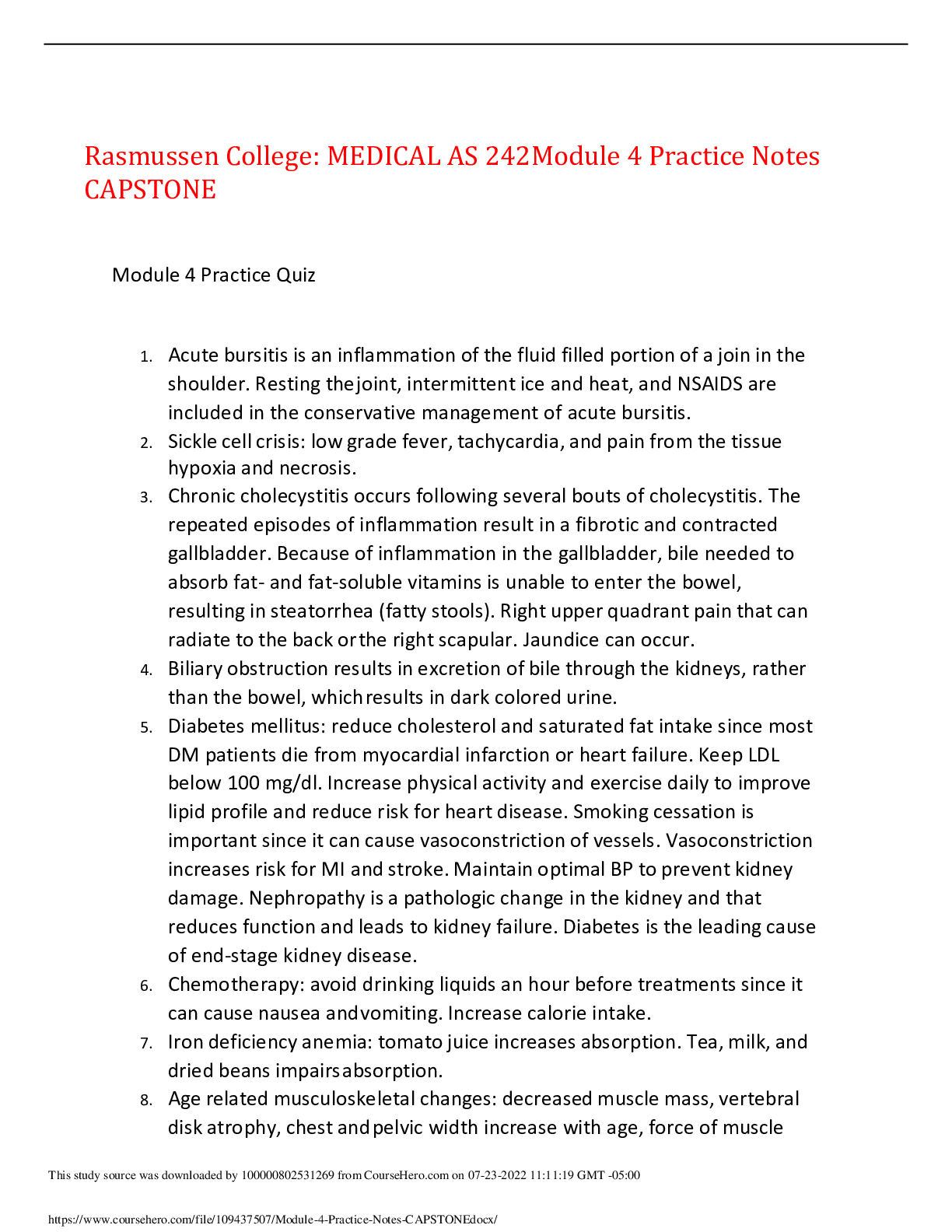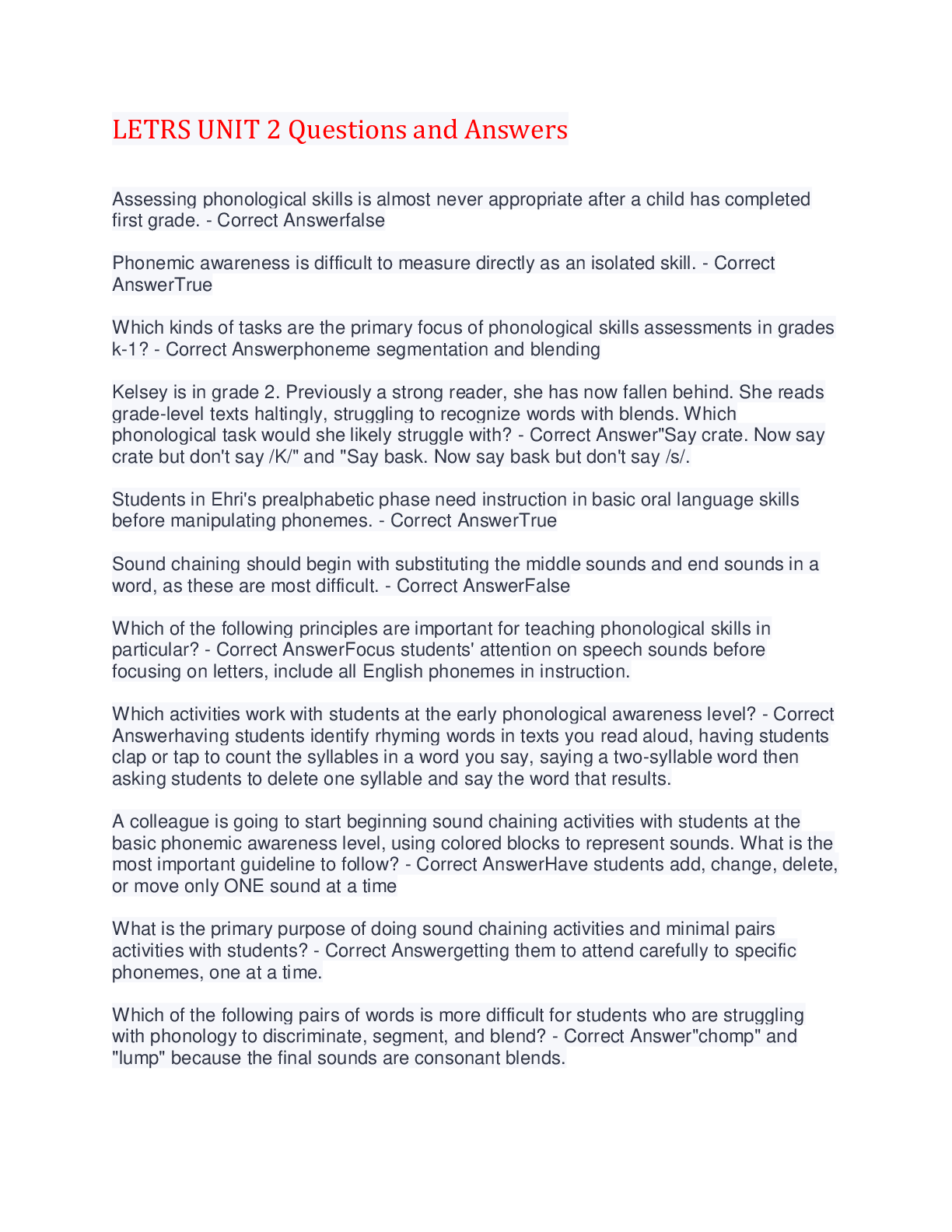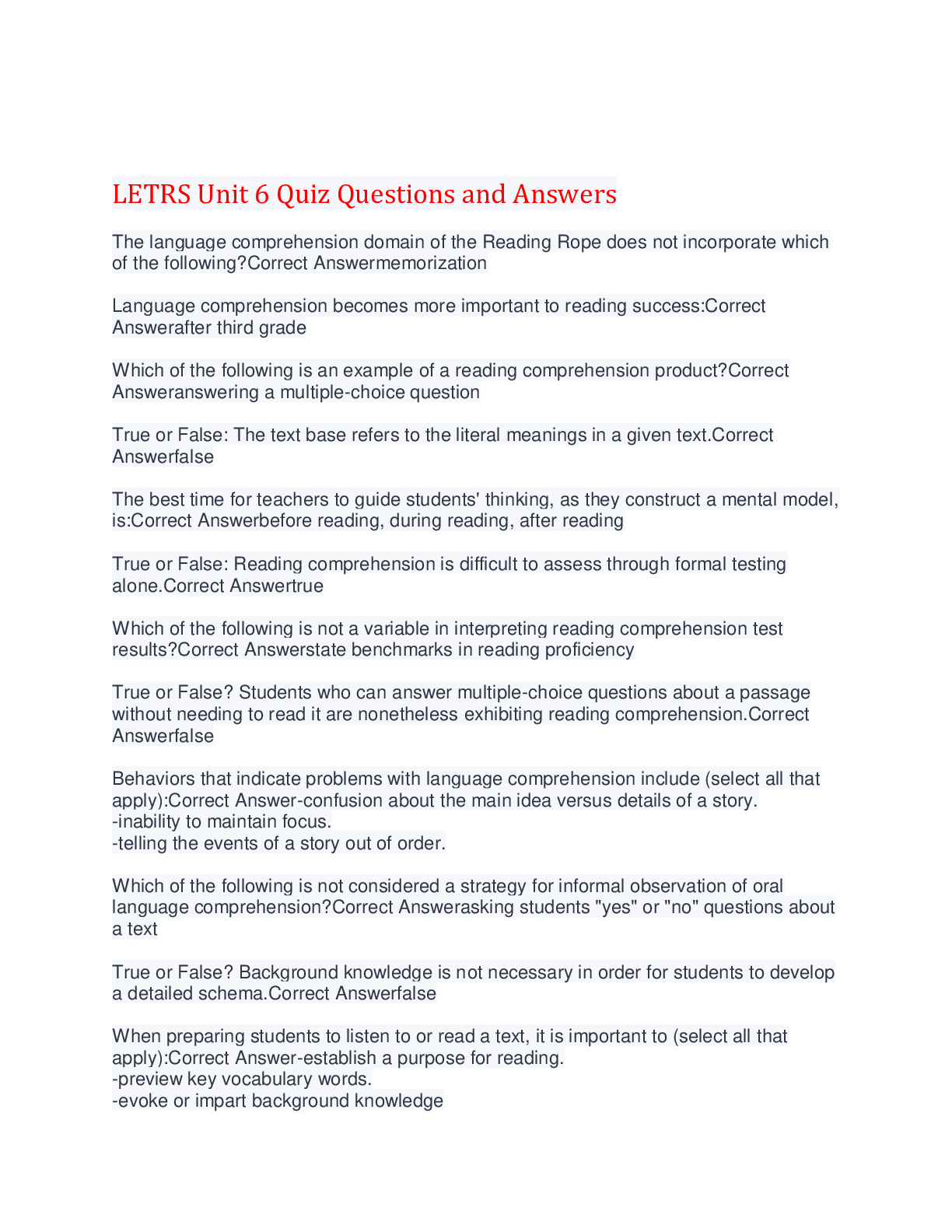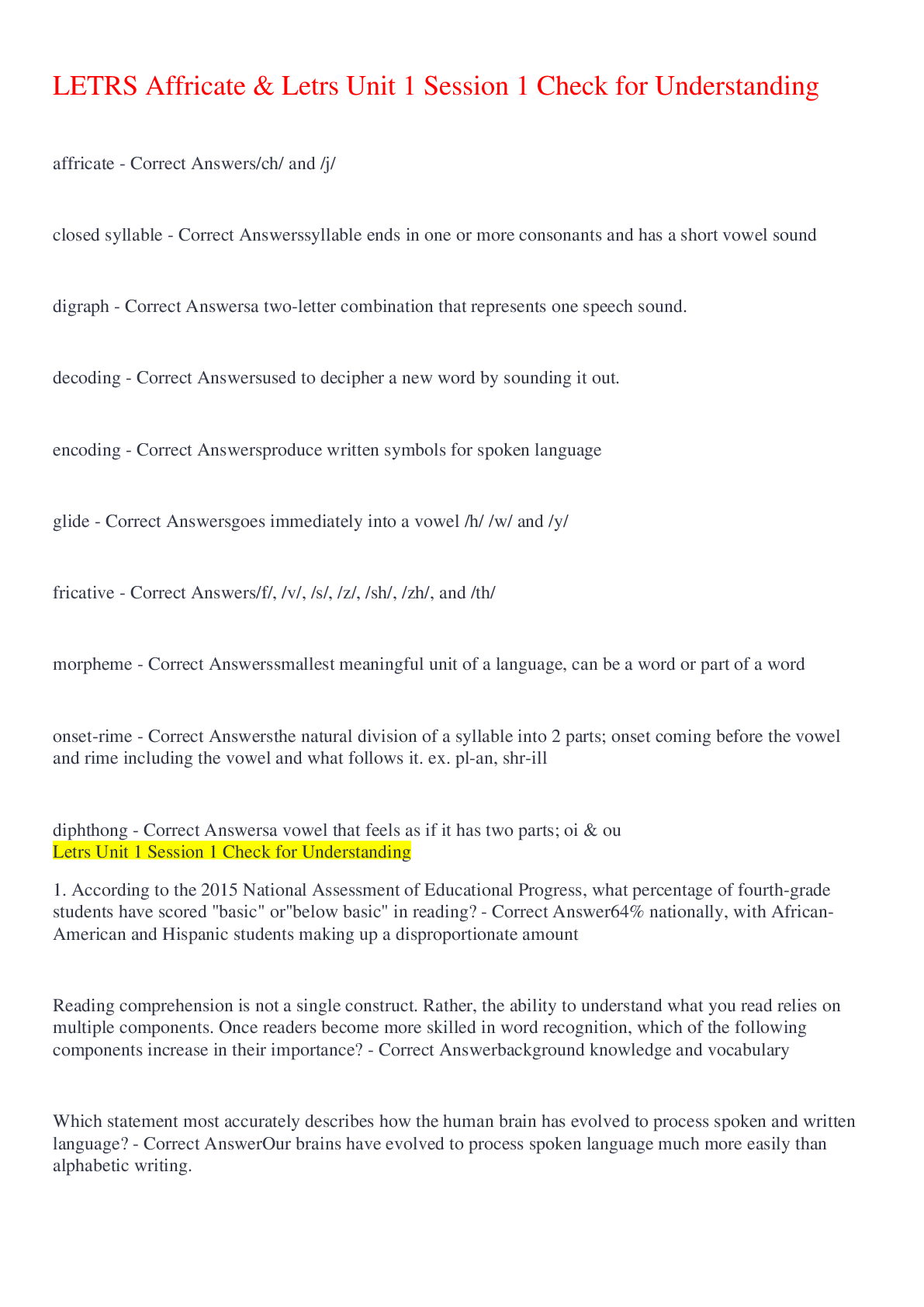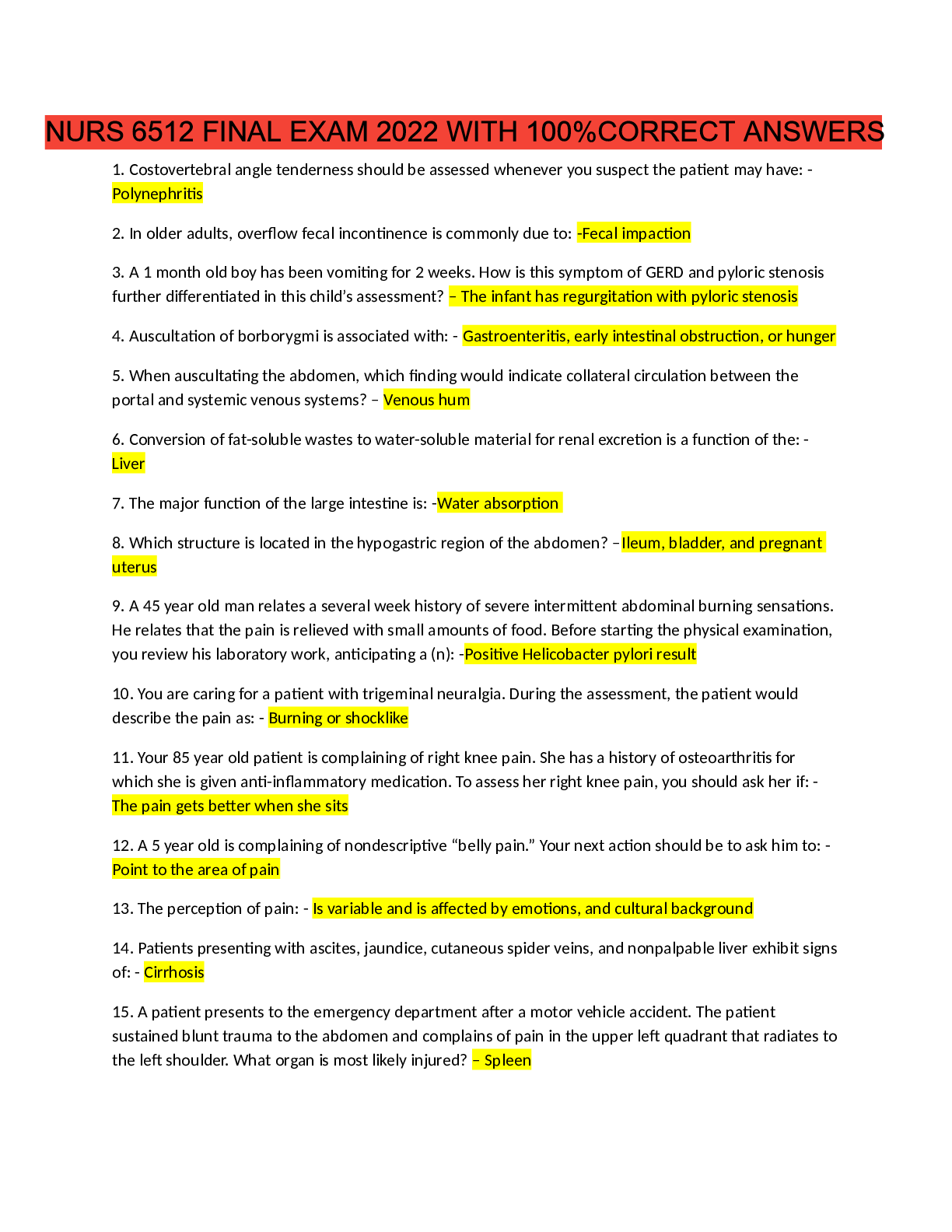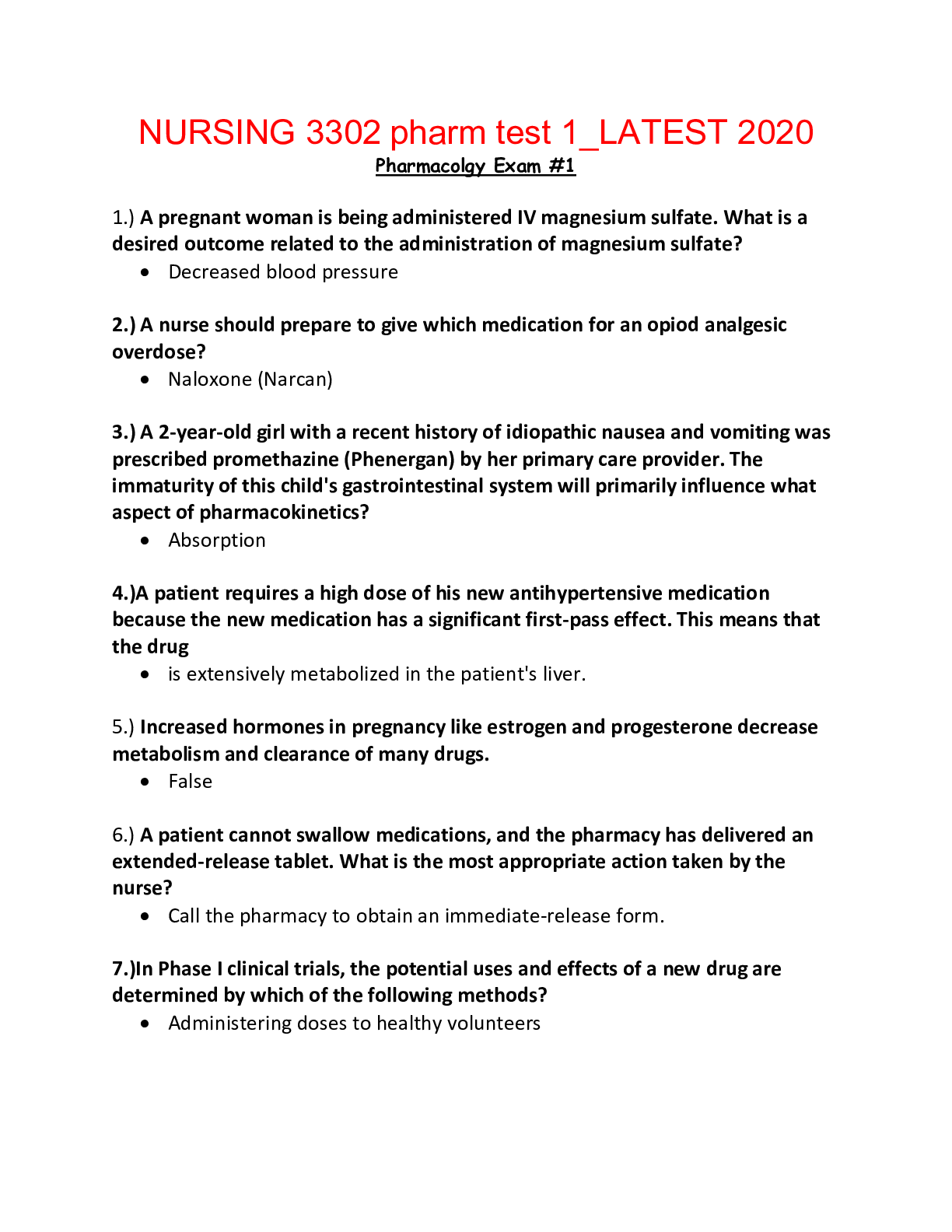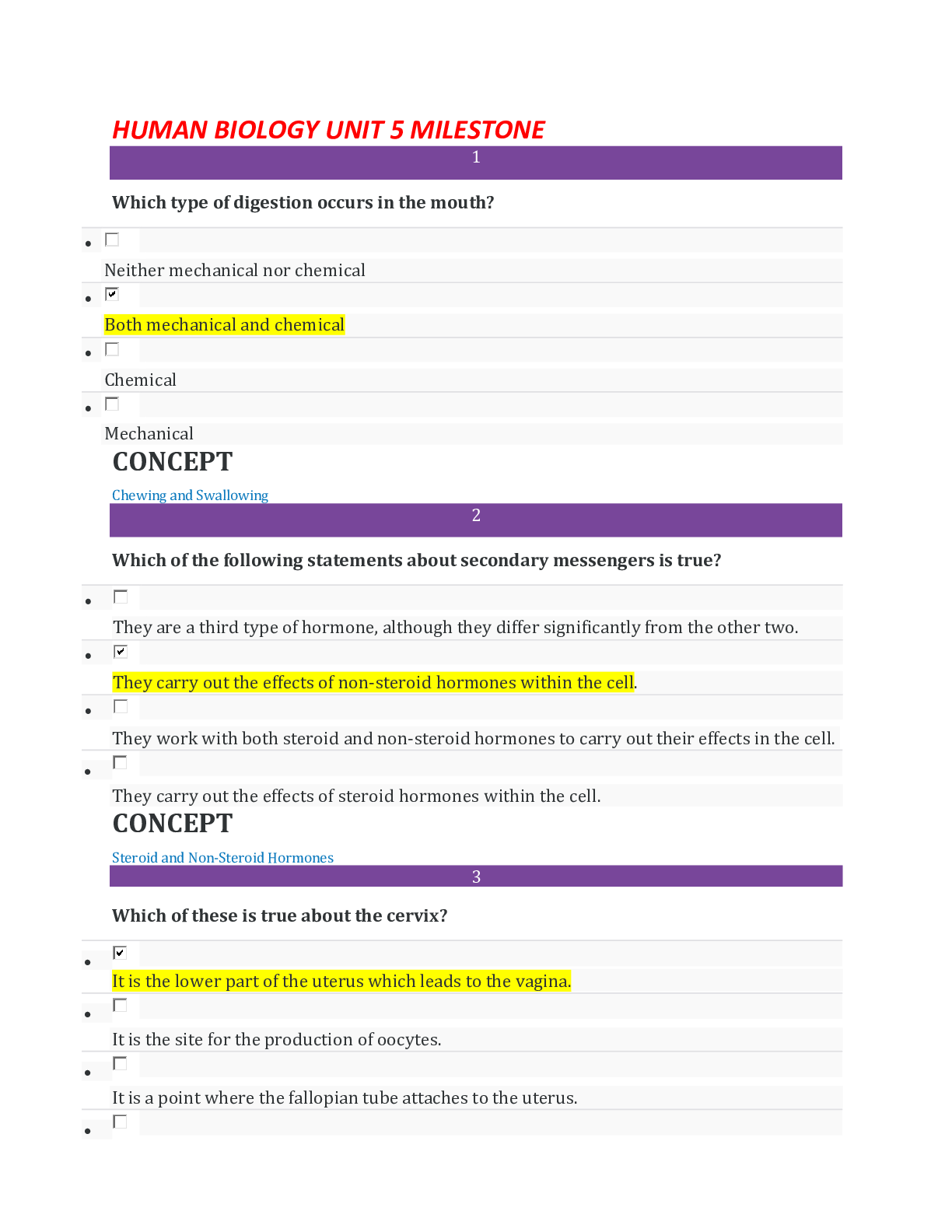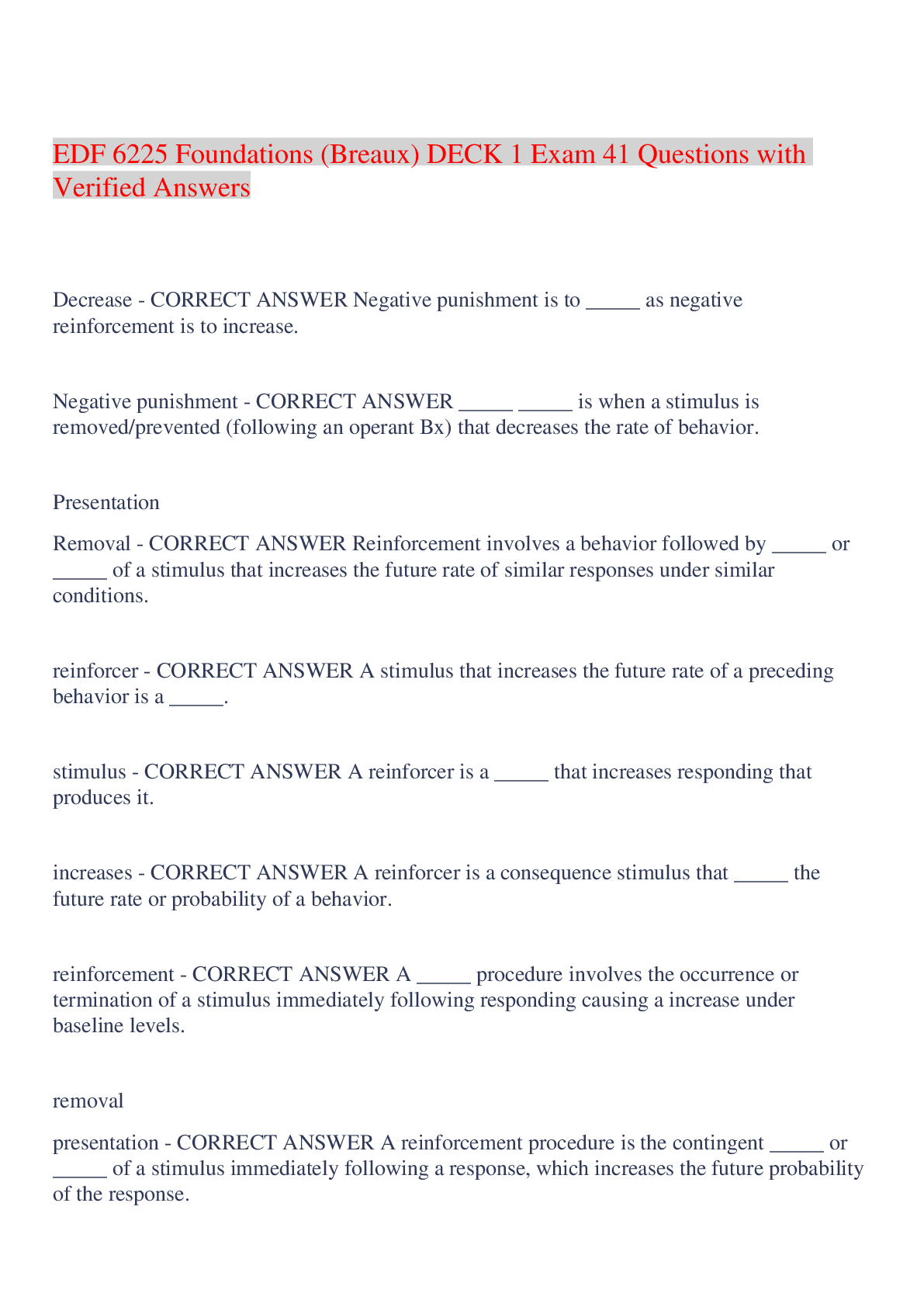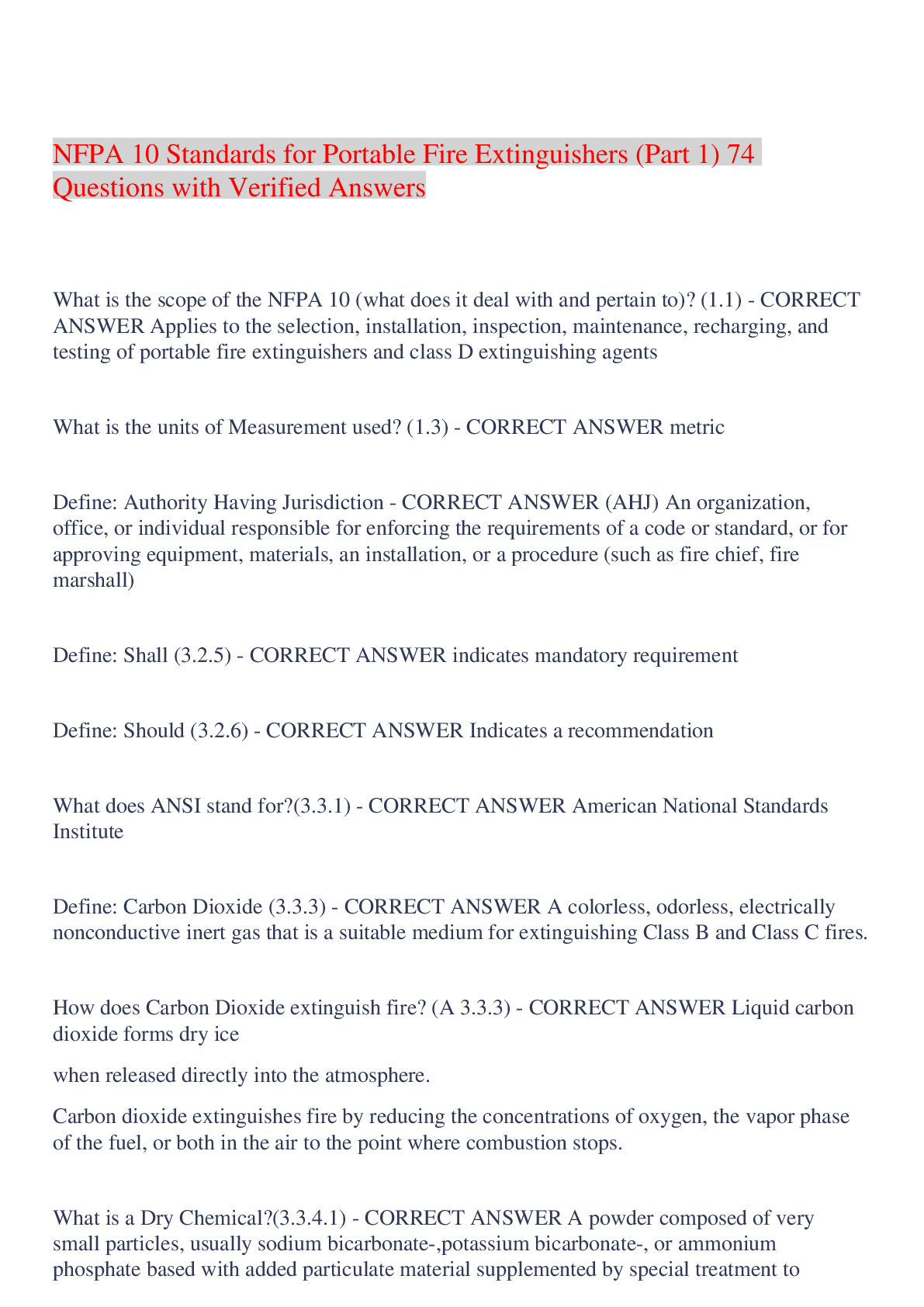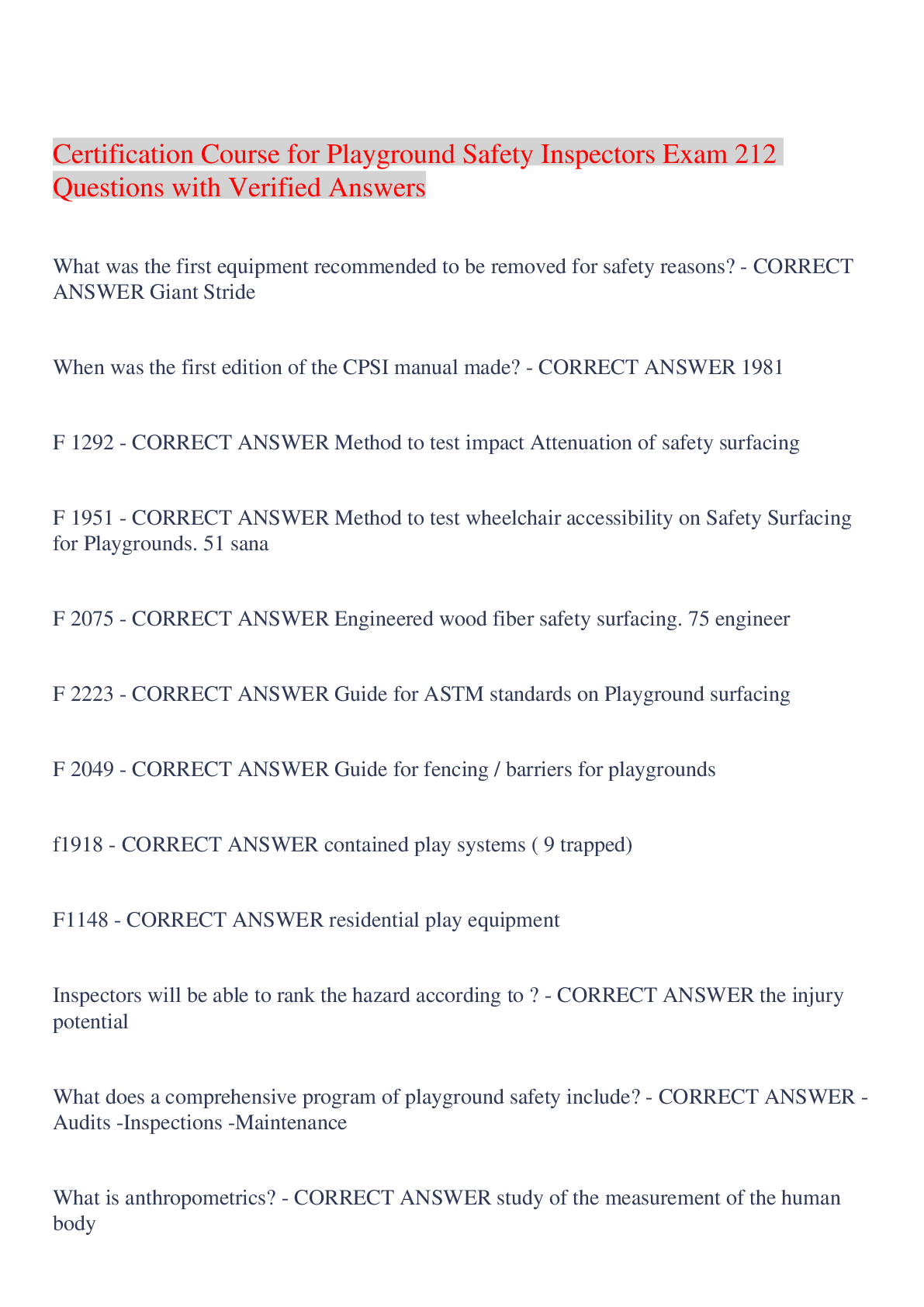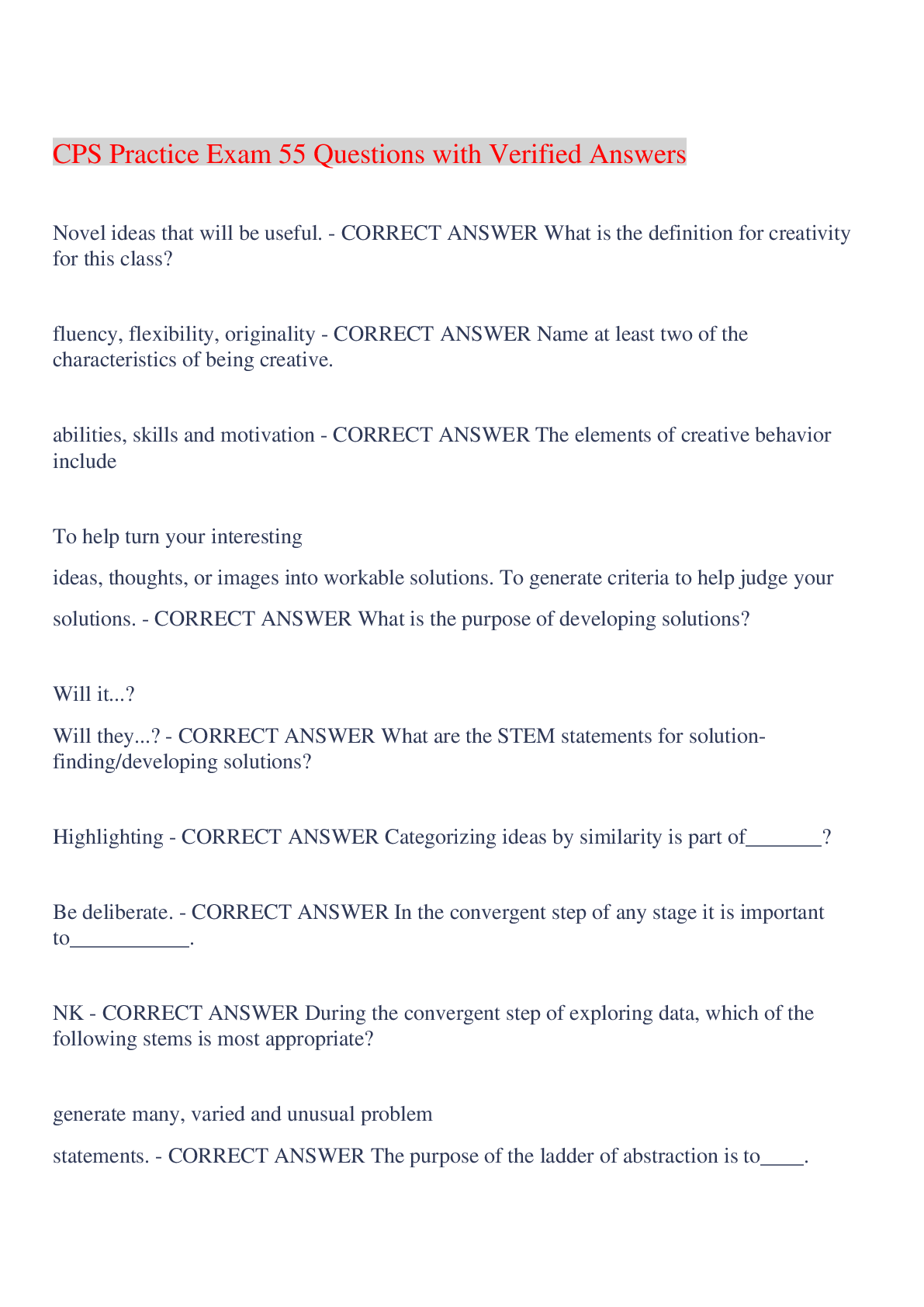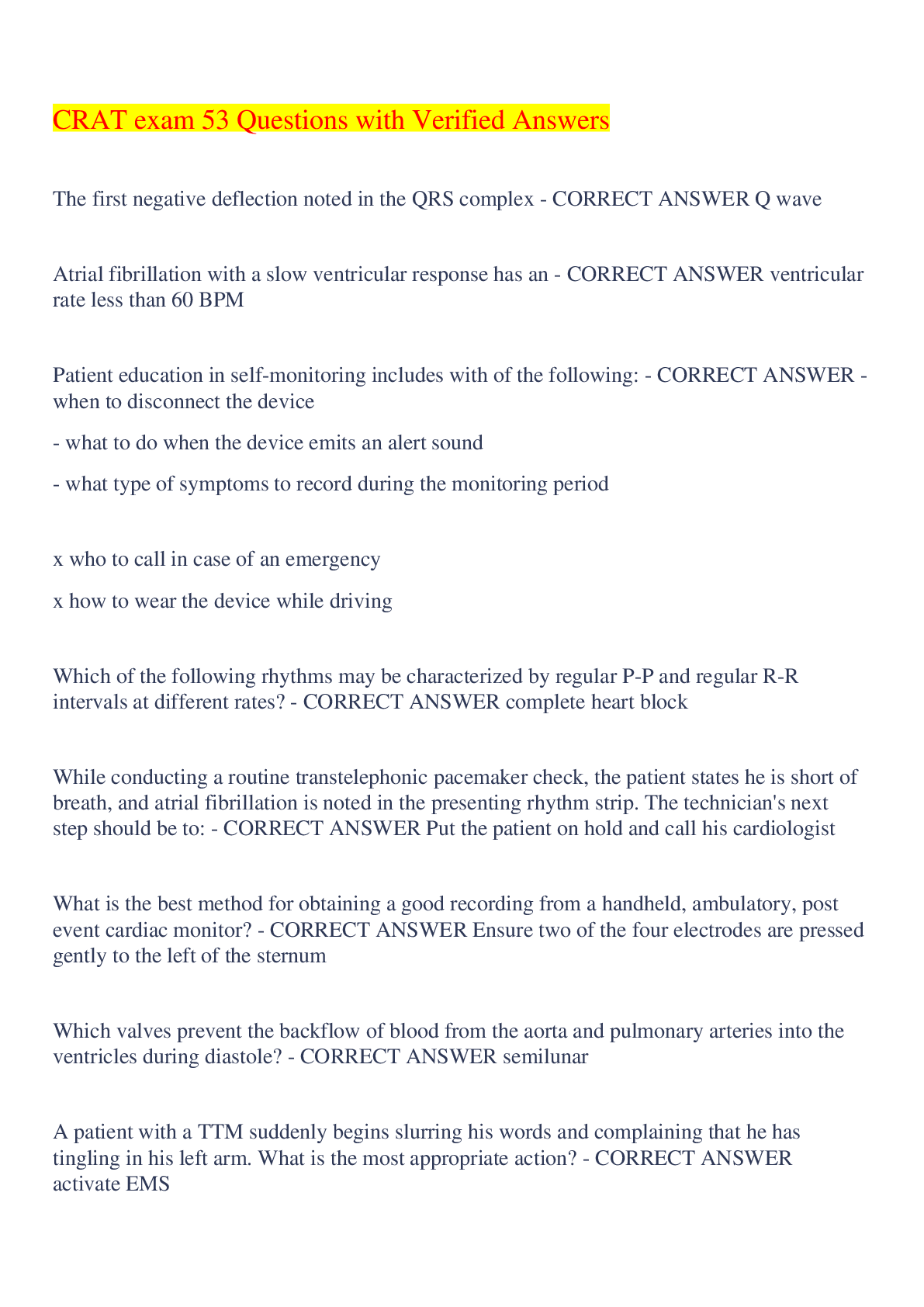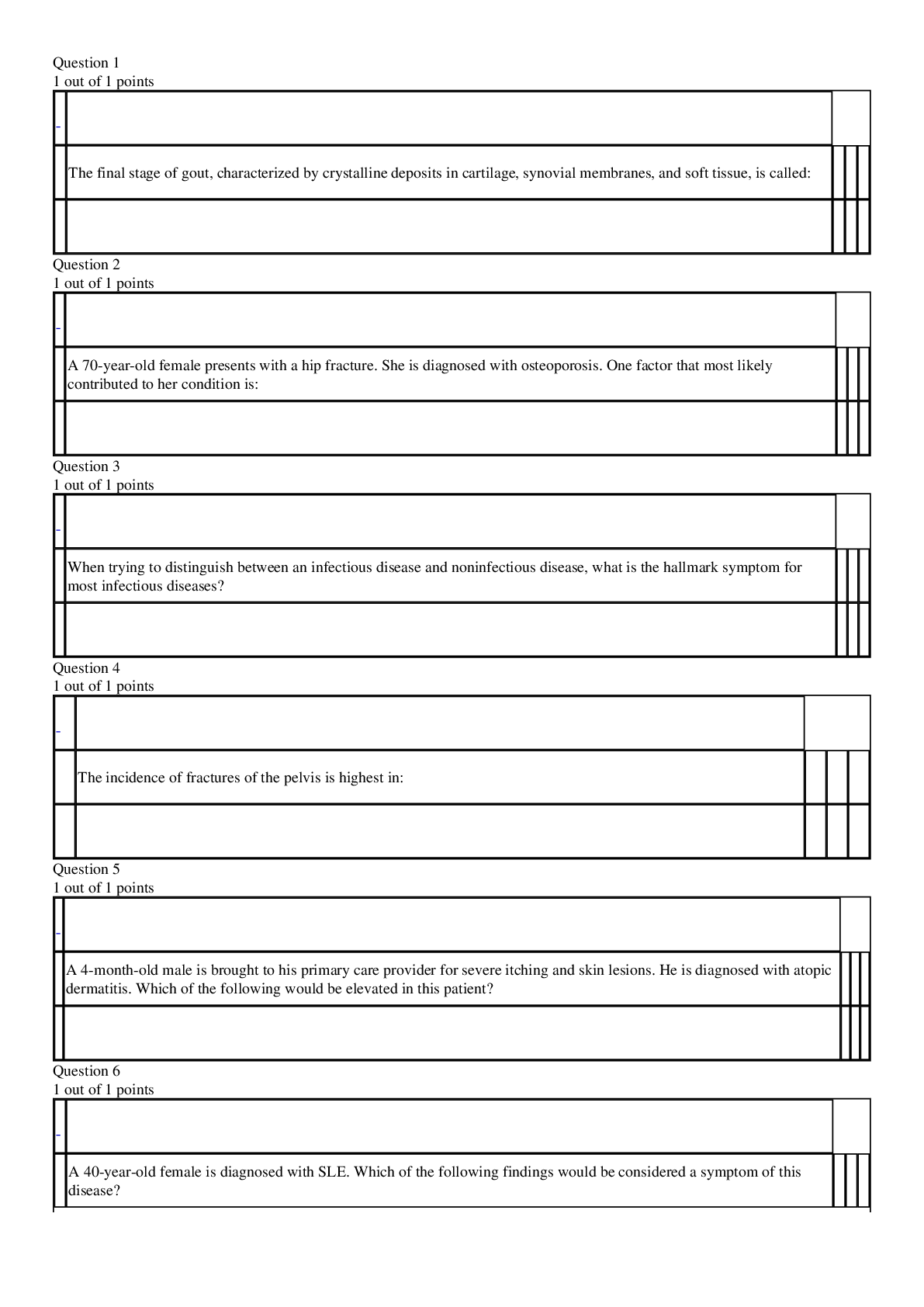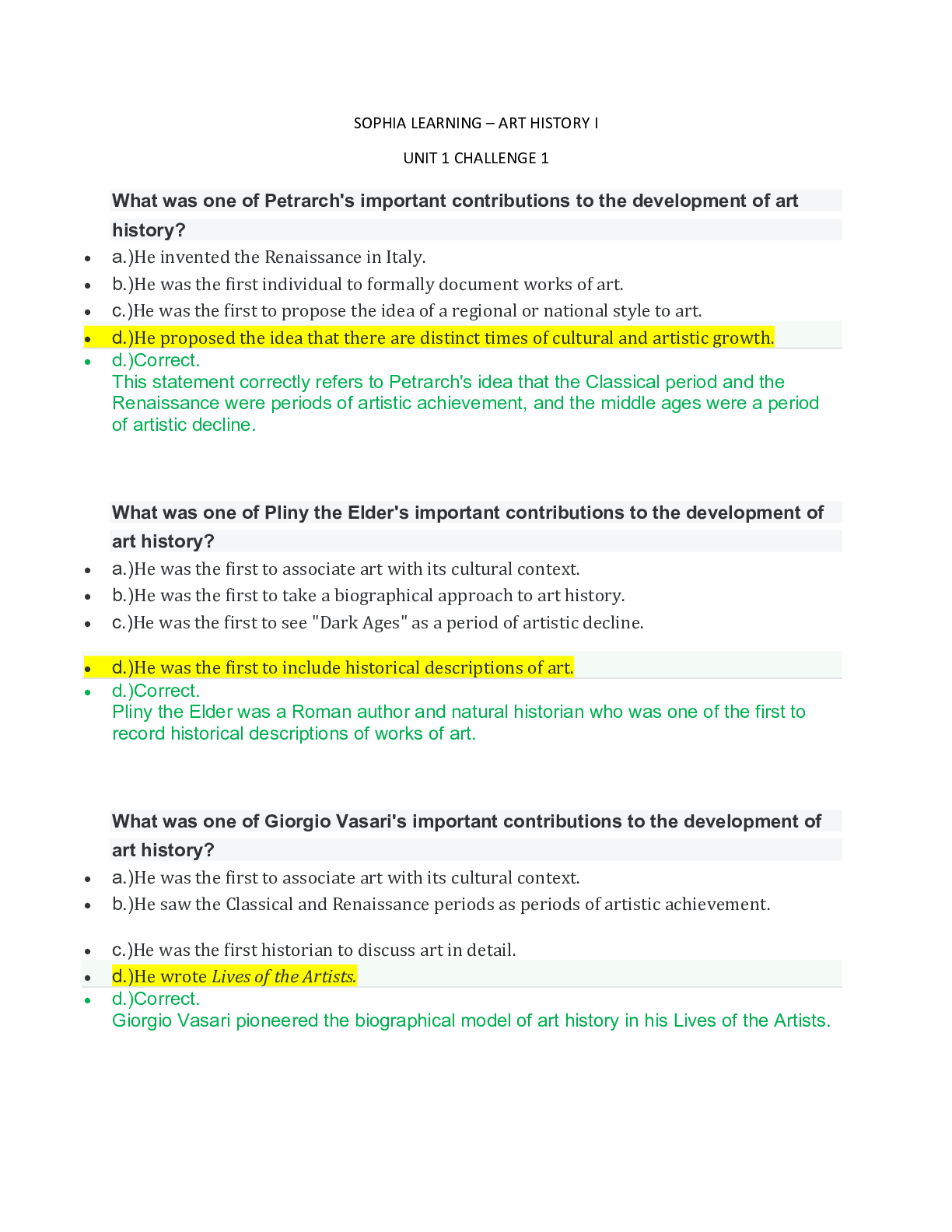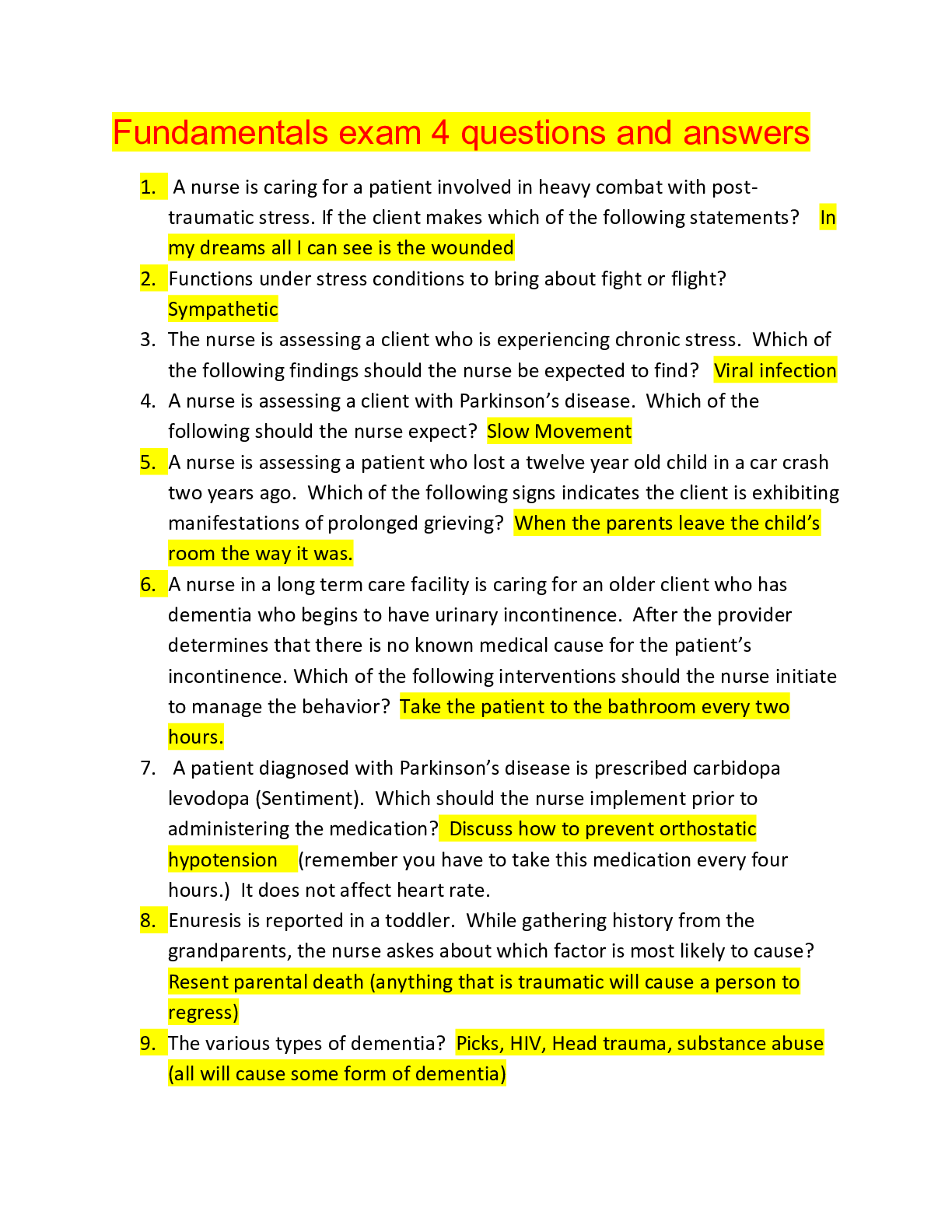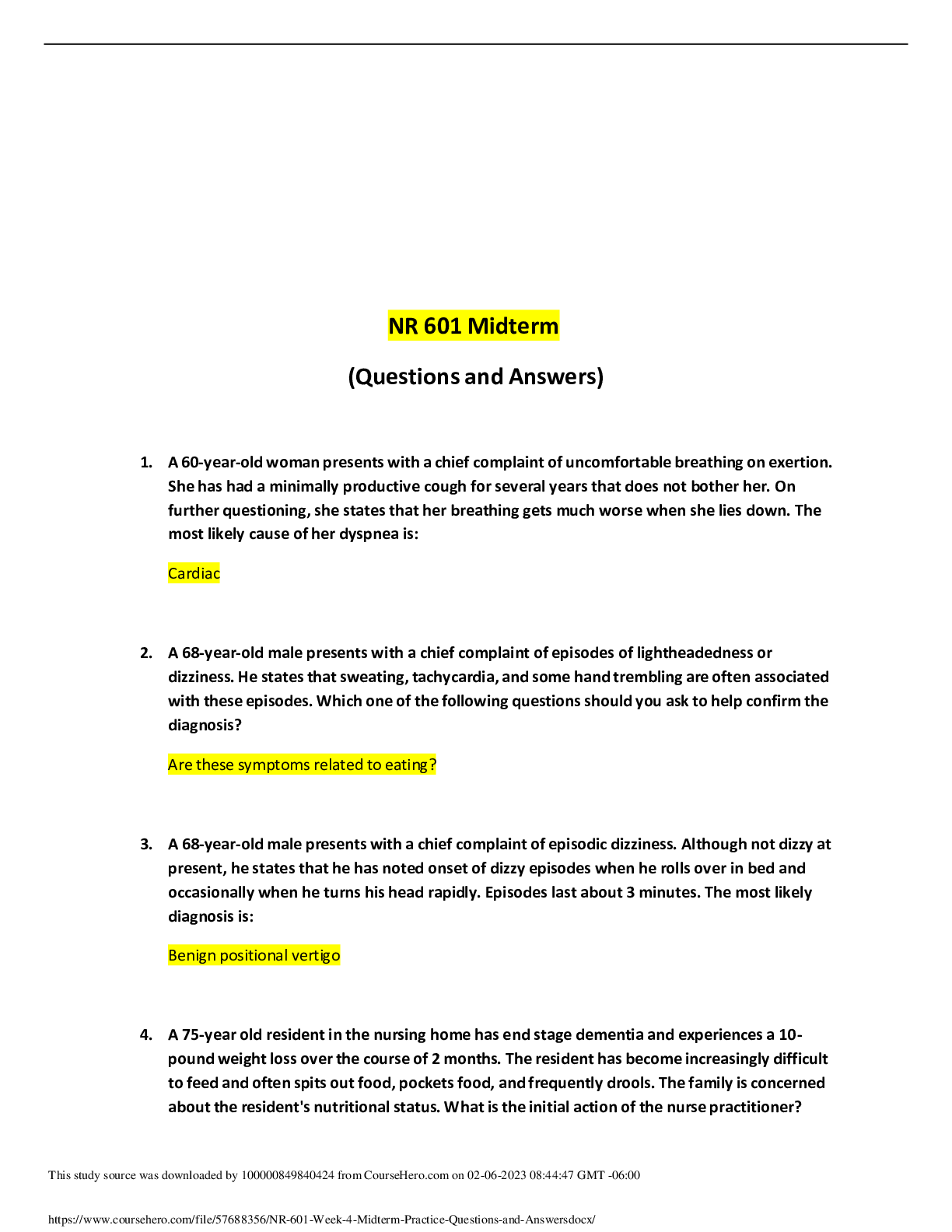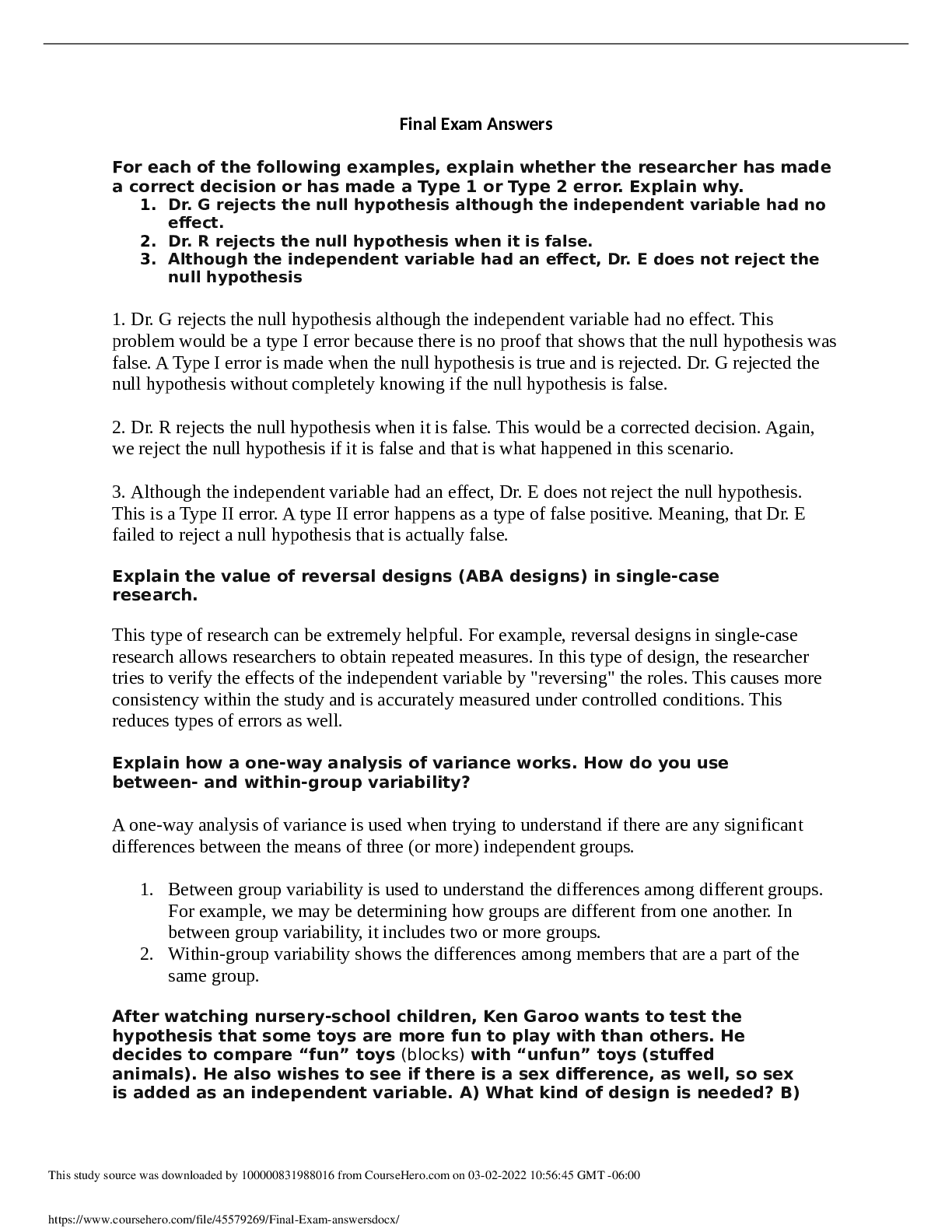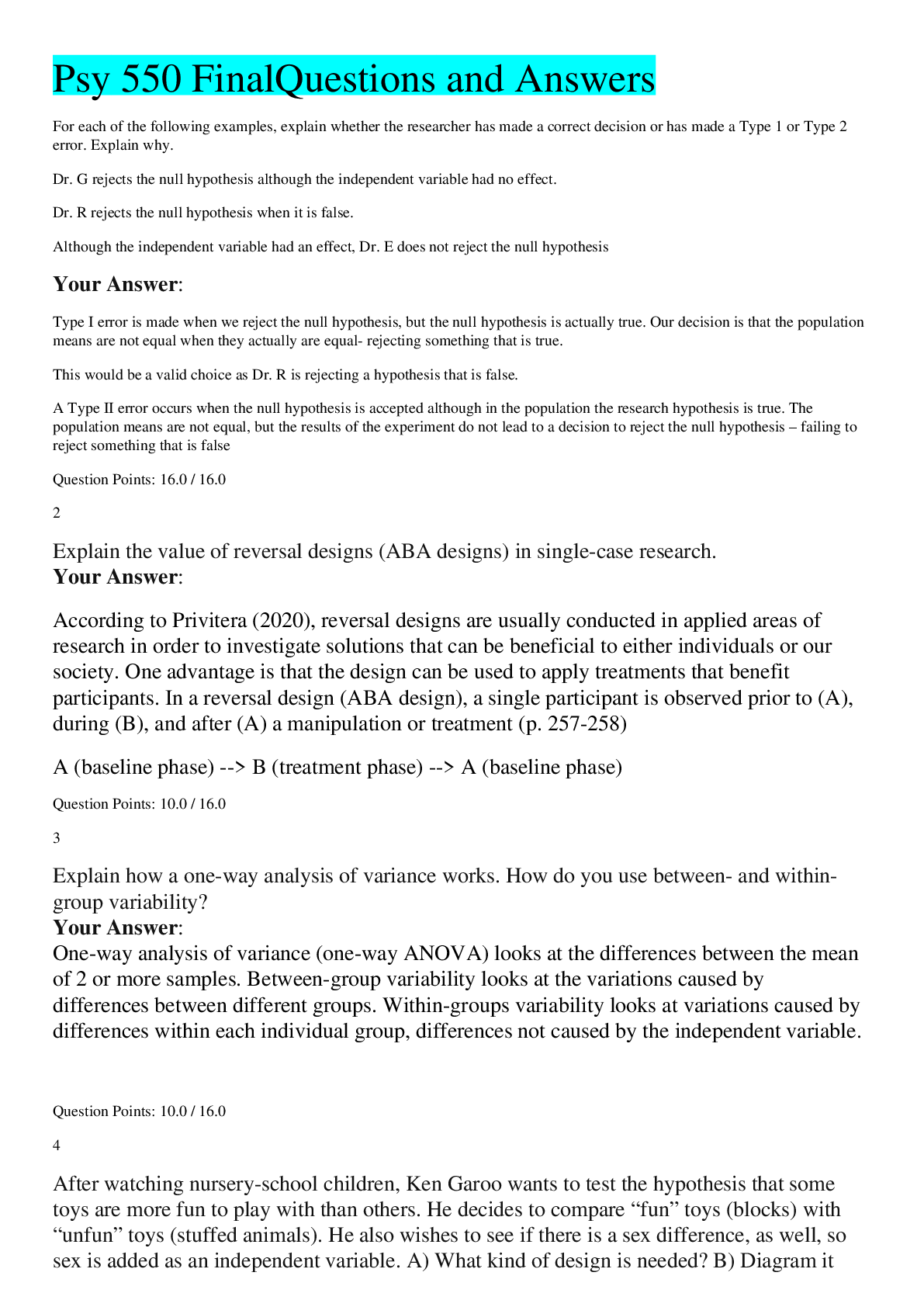English Language > EXAM > CALT Exam Prep_People Quiz Questions and Answers,100% CORRECT (All)
CALT Exam Prep_People Quiz Questions and Answers,100% CORRECT
Document Content and Description Below
CALT Exam Prep_People Quiz Questions and Answers Rudolph Flesch - Correct AnswersStarted the issue of the great debate to the publics attention on how best to teach a child to read. This came about... in his book. "Why Johnny Can't Read" (Mid 1950s) Kenneth Goodman and Frank Smith - Correct AnswersDeveloped the Top-Down approach to reading instruction. Believed that reading should be taught through immersion in children's literature . Teaches reading without breaking it down into parts. Whole Language based, emphasis is on guessing at words rather than sounding them out. (1980s) G. Reid Lyon - Correct AnswersBecame the coordinator of the research for NICHD. (1985) Top-Down Theory - Correct Answersled by Kenneth Goodman and Frank Smith **strong meaning-based position **Goodman calls reading a "psycholinguistic guessing game" **rather than read every word, good readers select out on the essential textual information **only focus on individual words/sounds when text does not make sense, and the reader needs to go back and reread **this is Whole Language characteristic Bottom-Up Theory - Correct Answersemphasis on the subprocesses of the reading act and its contention that many of these subprocesses, such as letter and word identification, must become automatic in order for readers to be fluent. (Alphabetic Phonics) Interactive Theory - Correct Answersreaders simultaneously initiate word identification and predict meaning----these are reciprocal events analytical approach - Correct Answerswhole to part (Top-Down) put the whole word on the board/discover what's the same, how it can be broken down into component parts synthetic approach - Correct Answerspart (letters) to whole words (bottom up) linguistics-based beginning reading approach - Correct AnswersLearning to recognize word families (bat, cat, hat, ) D. Berlin (1887) - Correct AnswersCoined the term "dys" -- meaning difficult, "lexia" -- meaning pertaining to words. James Hinshelwood (1917) - Correct Answers"word blindness" -- ophthalmologist from Scotland that discovered that the left hemisphere of the brain affected word storage Samuel Orton (1920-1950) - Correct AnswersNeuropsychiatrist from Columbia University in New York who first recognized dyslexia students in America. He discovered that approximately 10% of students will not learn using the whole words method. Also coined the term "strephosymbolia" (twisted words), which replaced the former term word blindness. Dr. Madonald Critchley (1964) - Correct AnswersEstablished term "developmental dyslexia" at the World Federation of Neurology meeting at the Scottish Rite Hospital. Marianne Frosig (1960) - Correct AnswersDid visual tracking research. Findings show there is no relationship between dyslexia and vision acuity. Isabelle Liberman (1973-1984) - Correct AnswersDid research on phonological awareness that linguistic information is stored in its phonological form (all word recognition requires letter-sound access). Also studied phonological processing deficits affecting the ability to make use of letter-sound associations as an effect of rapid retrieval problems. Discovered tapping exercises. Hugh Catts (1986) - Correct AnswersSpeech language pathologist working at the University of Kansas. Did remedial work for programs to improve phonological awareness. Keith Stanovich (1980) - Correct AnswersResearched the process of phonics and the need to attach sound to symbol. Readers with poor word recognition are more reliant on context than good readers (comprehension work). Bonita Blachman - Correct Answersprofessor at Syracuse University. Has done much research in the field of phonology and reading.Created Elkonian cards (kids who couldn't read couldn't segment sounds as well). Adolf Kusmaul - Correct Answers1877 - first used the term "word-blindness". Anna Gillingham - Correct Answers1930 - Psychologist and teacher in New York; along with Samuel T Orton at Columbia University, developed a non-traditional approach to teaching written language skills. Trained one teacher at a time, began working with Sally Childs and trained 50 teachers. Dr. Rudolf Berlin - Correct Answers1887 - ophthalmologist - introduced the term dyslexia Dr. W. Pringle Morgan - Correct Answers1896 - wrote first article in medical literature on "word blindness" in children Frank Smith - Correct AnswersWhole language. Founder of Whole language concept James Hinshelwood - Correct Answers1904 - reported 2 cases of "congenital word blindness", called for schools to establish procedures for screening as well as appropriate teaching of those that were identified with congenital word-blindness Joe Torgesen - Correct Answersnationally known for research on both the prevention and remediation of reading difficulties in young children as well as work on assessment of phonological awareness and reading Keith Stanovich - Correct AnswersHis research in the field of reading was fundamental to the emergence of today's scientific consensus about what reading is, how it works and what it does for the mind. The Matthew Effect Kenneth and Yetta Goodman - Correct AnswersWhole language, Drop Everythng and read, evaluation through miscues, founds of whole language [Show More]
Last updated: 1 year ago
Preview 1 out of 3 pages
Instant download
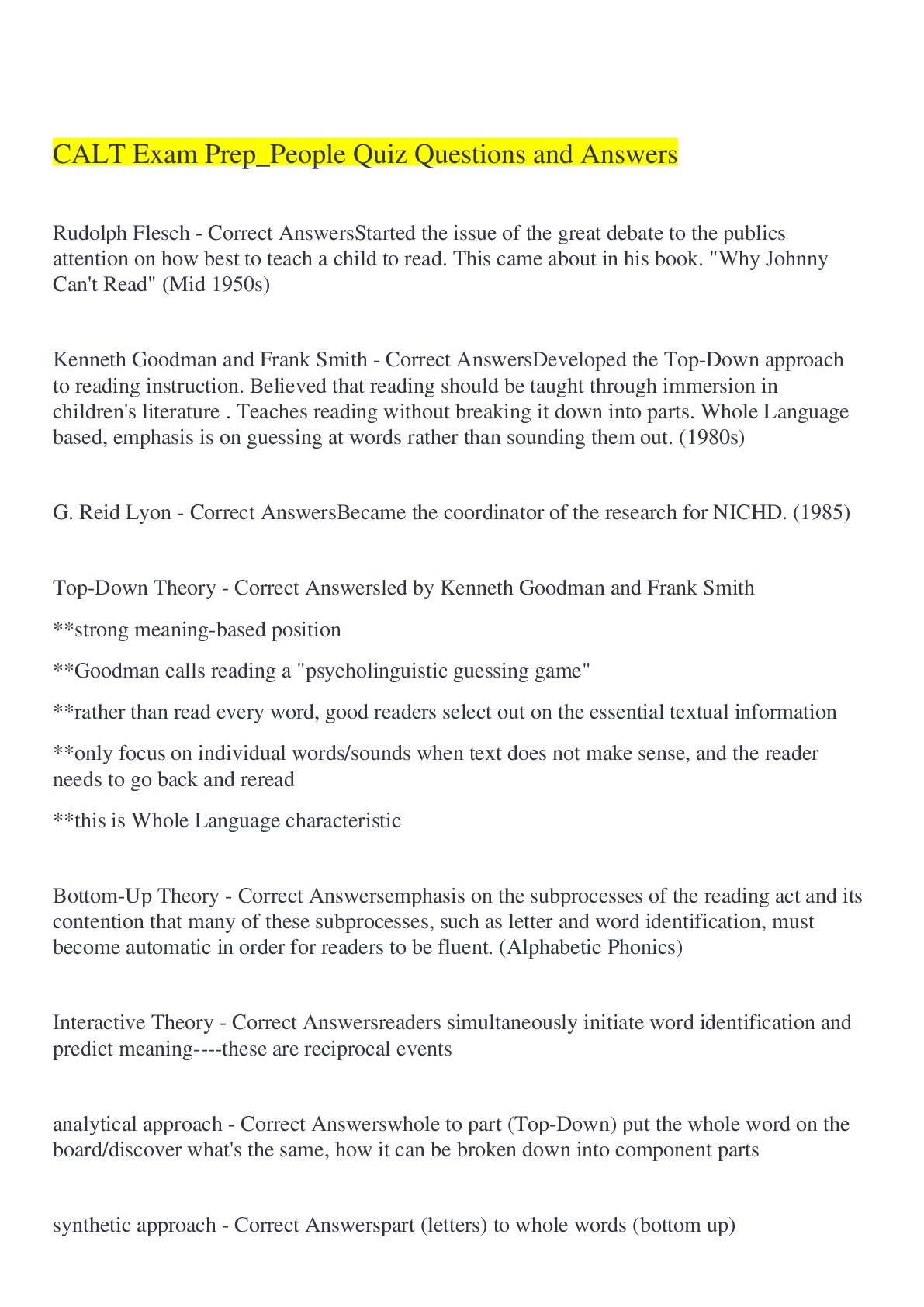
Buy this document to get the full access instantly
Instant Download Access after purchase
Add to cartInstant download
Reviews( 0 )
Document information
Connected school, study & course
About the document
Uploaded On
Feb 10, 2023
Number of pages
3
Written in
Additional information
This document has been written for:
Uploaded
Feb 10, 2023
Downloads
0
Views
70

